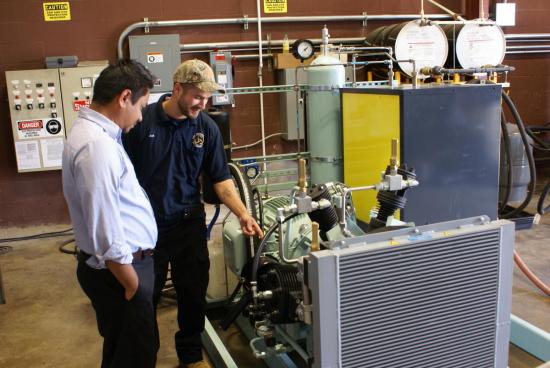Air compressors are essential tools for many industries, from construction to manufacturing. However, like any other machine, they require regular maintenance to ensure optimal performance and longevity. Whether you’re a seasoned pro or just starting out, following these simple guidelines can save you time, money, and headaches down the road.
When it comes to the maintenance plan of your air compressor, there are a few steps you can take to ensure that it continues to work efficiently for as long as possible. Initially, check the air filter regularly and clean or replace it as needed. A dirty air filter can cause damage to other components of the compressor and reduce its overall efficiency.
Make sure to change it at regular intervals according to the manufacturer’s recommendations and keep an eye on the oil level to ensure that it remains within the operating range. Additionally, be sure to drain any moisture that may accumulate in the tanks or traps to prevent dangerous and potentially devastating failures.
It’s also important to keep an eye on the pressure levels and make adjustments as necessary. Using compressed air that isn’t at the proper pressure can cause equipment to operate poorly and even fail completely. Finally, make sure to follow all warning labels and safety precautions when working with an air compressor, as failure to do so could result in serious injury or worse.
What Is the CFM in an Air Compressor?
CFM stands for cubic feet per minute and is a measurement of the amount of air that an air compressor can deliver. It’s important to note that CFM measurements vary depending on factors such as atmospheric pressure, temperature, and humidity. Understanding the CFM of your air compressor is crucial when selecting tools or equipment that require specific amounts of airflow.
For example, if you’re using a paint sprayer that requires 5 CFM at 40 PSI (pounds per square inch), but your air compressor only delivers 3 CFM at 40 PSI, you won’t get the desired results. This is because the paint sprayer requires a higher airflow than what your air compressor can provide.
Knowing the CFM rating of your air compressor will help you select the right tools and equipment for your projects and ensure optimal performance. So next time you’re using an air compressor, remember to consider its CFM rating and how it affects the task at hand.
If you want to learn about fluidairedynamics.com, please follow the link.


Comments are closed.